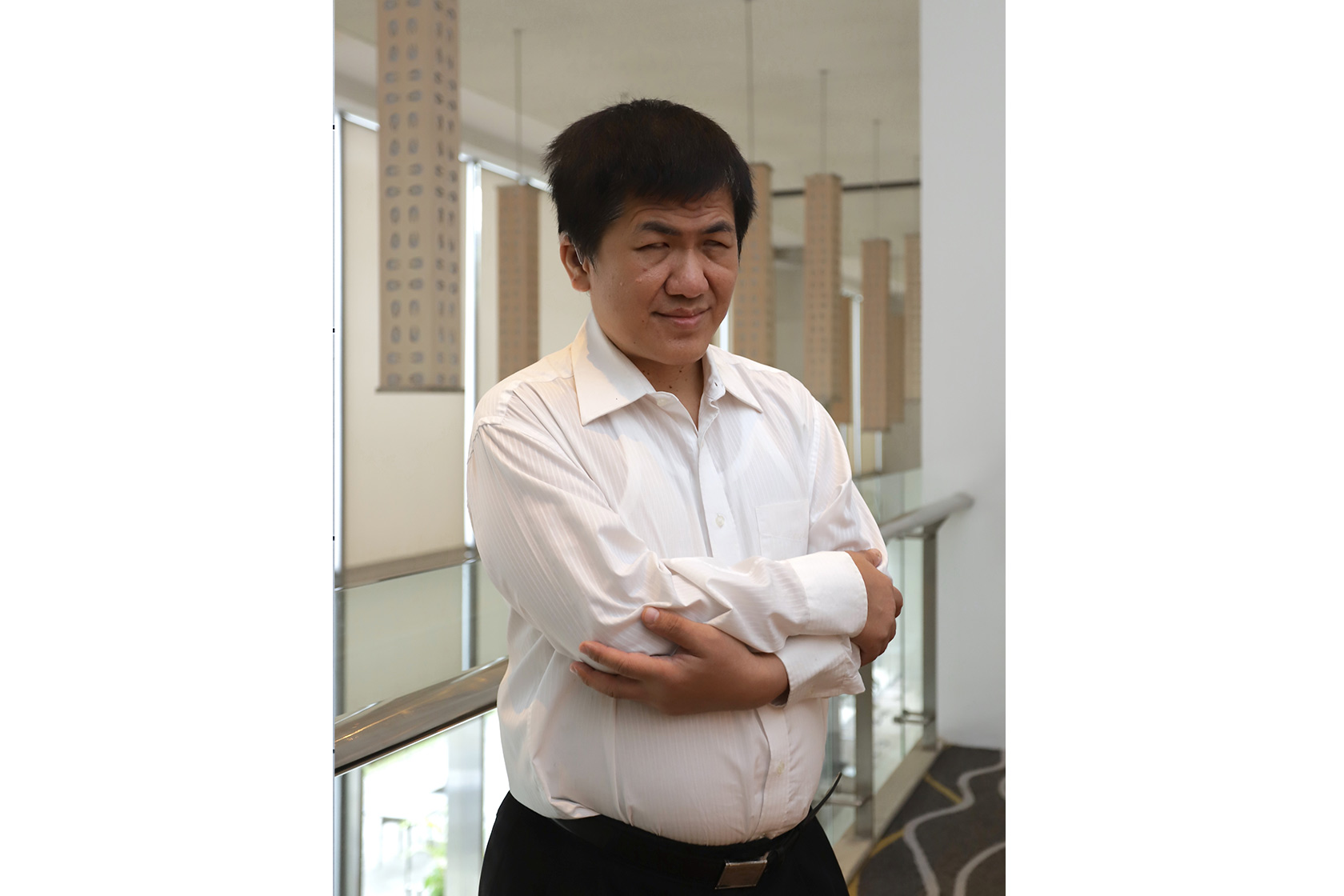Amid his busy schedule, working as a masseuse and teaching theology to people with disabilities in Jakarta, Chandra Gunawan dedicates every spare moment to advocating for a more inclusive environment for the deafblind community.
Born in Jakarta in 1970, Chandra is a deafblind person. He lost sight in both eyes at the age of 5. His hearing also decreased, leaving him with 10% of his hearing at age 10.
“Deafblind people are frequently misunderstood,” said Chandra, who currently serves as the head of the Association of Indonesian Deafblindness Empowerment (PELITA). He said many Indonesians are still unfamiliar with the unique needs of individuals with multiple disabilities, often erroneously treating them as if they only have a singular disability.
"Many perceive our needs as merely a combination of those of the visually impaired and the deaf. However, the reality is quite the opposite. As individuals with deafblindness, we are not two people combined into one, but rather one person with dual needs," Chandra said, answering the questions for this interview through WhatsApp messages.
Chandra credits his mother and siblings for their unwavering support throughout his childhood. They played a crucial role in finding a suitable school for the visually impaired (SLB), where he learned Braille and studied theology in Malang, East Java. His family also went the extra mile by sourcing Braille books and magazines from Bandung, West Java, for him to hone his talents, which ultimately led to him becoming a writer and speaker.
“I was fortunate to be born into a family that loves me dearly," said Chandra, while also acknowledging that his family tends to be overprotective. "Even though I use a mobility cane and have mastered orientation and mobility techniques, they still constantly worry about my safety."
Living independently in the community is a challenge for many deafblind friends, says Chandra. However, not everyone has a supportive family like his.
People with disabilities encompassing both deafness and blindness require suitable accessibility and accommodations. In addition to inclusive facilities, they also need assistance with communicating, such as the presence of a typist at meetings.
Before PELITA was formed, Chandra used to mingle with his visually impaired friends. In April 2019, he received an invitation from the Movement for Indonesian Deaf People's Welfare (Gerkatin) to attend the first seminar for deafblind individuals in Jakarta.
“That was the first time I met other people with deafblindness,” he recalled. “We then decided to establish a community for individuals with deafblindness as we shared similar needs. Some of us used to come together with visually impaired friends, while others joined deaf friends. However, we realised that our needs were not exactly the same as those of visually impaired friends or deaf friends. That's why we felt the need for a new association specifically for deafblind individuals.”
Chandra and his friends regrouped in November 2019 and officially established the community. As the head of PELITA, Chandra advocates for a more inclusive environment for deafblind individuals. One of the association's projects includes working with the General Elections Commission (KPU) and the Elections Supervisory Agency (Bawaslu) to organise an accessible and double disability-friendly election. After several meetings, with the support of the KPU, PELITA created an election simulation video. It provides guidelines for deafblind individuals and polling station volunteers on how deafblind individuals can cast their votes. The video will be distributed by the KPU.
“While an inclusive general election is possible in Jakarta, the same may not be true for other cities outside Jakarta. We don't have data on how many deafblind people are outside Jakarta. Additionally, we have yet to secure sufficient funds to accompany our members in other regions in reaching out to the KPU and Bawaslu in those areas," explained Chandra.
A Life-Changing Experience
With much work to do at PELITA, Chandra seized the opportunity to participate in the Australia Awards Short Course on the Role of Government and Organisations for People with Disabilities (OPDs) in the Implementation of Policy Reform for Inclusive Development. The course held in Sydney provided him with the fuel to continue his advocacy work.
“I am the first deafblind recipient from Indonesia. Initially, the lecturers were concerned about whether I could handle the course, along with my other friends with disabilities,” he said.
But Chandra always delivers. Although it took him more time, as he needed to read what his daughter had written for him, he actively participated in the discussions. “I used a tool called Braille Display. The tool is connected to a laptop, and all the conversations typed on the laptop would appear in Braille. That’s how I joined the seminars, discussions and other meetings,” he recalled.
Chandra also shared how the scholarship has allowed him to expand his networks. “I met amazing individuals; Professor Michele Ford and Dr Annmaree Watharow are some of them,” he said, giving a special mention to Dr Watharow, a deafblind person and researcher who obtained her PhD from the University of Sydney.
Moreover, the program provided him with opportunities to raise awareness about PELITA with government organisations as well as other OPDs. “Many Australia Awards Scholarship alumni work in the ministry. They speak highly of our efforts in advocating for deafblindness and have become supporters of PELITA. Since returning from Sydney, PELITA frequently receives invitations from various organisations, including CBM Global Disability Inclusion," he said.
Chandra said he learned a lot from his experience in Sydney, which motivated him to work harder to advocate for an inclusive environment. “If the Australian government successfully implements inclusive policies for people with disabilities, it is not impossible for the Indonesian government to do the same. Hopefully, in the not-too-distant future, our aspirations for people with disabilities in Indonesia can become a reality.”


 Chandra Gunawan Seeks Understanding and Inclusion for Deafblindness
Chandra Gunawan Seeks Understanding and Inclusion for Deafblindness
